- Make It Yourself Lavender Heart-Shaped Bath Bombs!
- 20 Things You Never Knew About “Down There”
- 12 Best Foods For Those Suffering From Arthritis Pain
- 12 Personal Hygiene Mistakes Almost Everyone Makes (Mom Never Told You About #4!)
- 15 Medicinal Plants And Herbs From The Cherokee People
- 12 Mind-Blowing Benefits Of Drinking Coconut Water During Pregnancy
- 12 Outstanding Winter Foods That Won’t Fatten You Up Like A Christmas Turkey
10 Spices That Do Everything From Preventing Heart Attacks To Killing Cancer
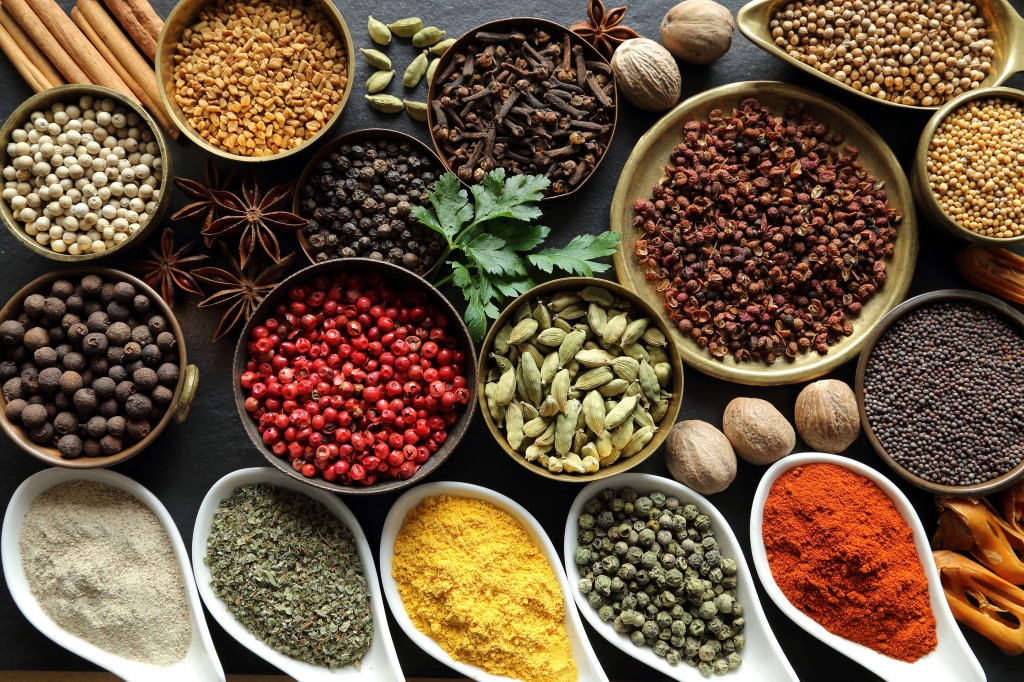
Photo credit: bigstock.com
When was the last time you checked out your spice rack? More than just adding a bit of pizazz to your food, some spices are unbelievably good for you! They can reduce inflammation, fight cancer, and improve your heart health, just to name a few things!
Spices can strengthen our bodies so that we more easily fight an invasion of toxins, bacteria, and even viruses. It might sound impossible that your humble spice rack can do so much, but it’s true!
Keep reading and find out which 10 spices can help you improve your health simply by adding them to your meals.
1. Saffron
Real saffron is one of the most expensive spices in the world because each of these “threads,” as they are called, must be carefully gathered by hand. This spice might very well be worth the price, however. Several studies have shown this spice to be super healing! One study found that saffron had the same antidepressant compounds as Prozac. Another study found that saffron increases blood flow to the brain, which improves memory and cognitive performance. Still another study found that saffron was very beneficial for the eyes, slowing or even reversing degenerative eye diseases.
2. Rosemary
Rosemary is so well known for improving cognitive performance and memory that as far back as ancient Greece, students wove it into their hair as they studied for exams. The major component in rosemary, carnosic acid, protects the brain from the damage that free radicals cause, which can lower the risk of Alzheimer’s and stroke. Rosemary has so many antioxidants that the American Association of Cancer Research linked this active ingredient with the inhibition of cancer cell growth. Please avoid rosemary if you are pregnant.
Continue to Page 2
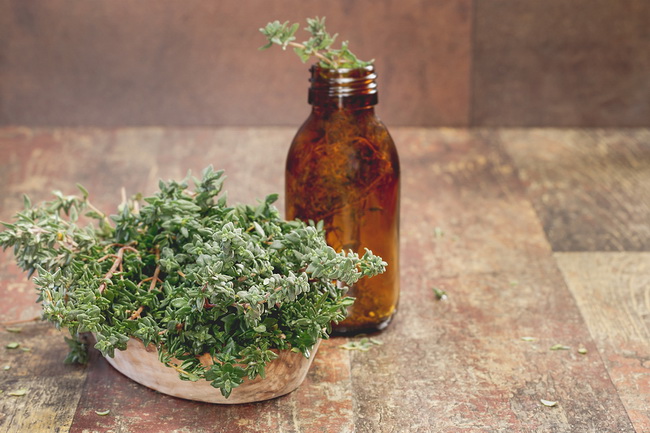
Photo credit: bigstock.com
3. Thyme
You most likely have a large bottle of thyme in your spice cabinet right now. It’s hard to imagine making any Italian dish without it, but its thyme’s antimicrobial compounds that get researchers to sit up and take notice. If you have used any type of mouthwash, such as Listerine, or even those green-colored household cleaners, then you have used thyme! A volatile oil in thyme called thymol has been found in studies to kill food borne pathogens such as shigella, E. coli, and staph. Thyme is also great for improving the digestion.
4. Sage
If you think of sage and think “sage advice,” you aren’t that far off. Sage has been shown to improve both mood and memory. In fact, one 2005 study found that when healthy volunteers were given sage essential oil, they not only felt more alert and calmer, but they remembered things better. Sage might also help those who suffer from dementia and Alzheimer’s. Sage inhibits an enzyme called acetylcholinesterase, which is the same thing that most Alzheimer’s drugs do. Sage is also terrific at easing menopause symptoms because it has estrogen-like effects.
Continue to Page 3
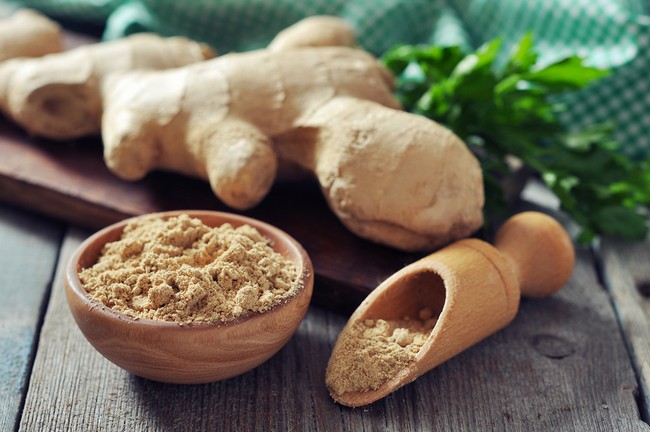
Photo credit: bigstock.com
5. Ginger
Ginger has been used for eons to stop nausea and vomiting but other studies have found that ginger can also calm pain, such as menstrual cramps and migraines. Ginger is also a powerful COX inhibitor, which is great news for anyone who is suffering from chronic inflammatory conditions such as osteoarthritis. Ginger can make gallstones worse, and it can interfere with other medications, so please consult with your doctor before consuming more than a cup of ginger tea.
6. Cayenne Pepper
This culinary spice has been used for centuries and is perhaps one of nature’s most valuable pain-relieving agents. The active ingredient, capsaicin, not only stops nerves from sending pain signals to the brain (at least temporarily), but it can also neutralize cancer-causing compounds, such as nitrosamines, and help to prevent cancers from starting or growing. In one study, capsaicin caused the death of 80 percent of prostate cancer cells in mice.
Continue to Page 4
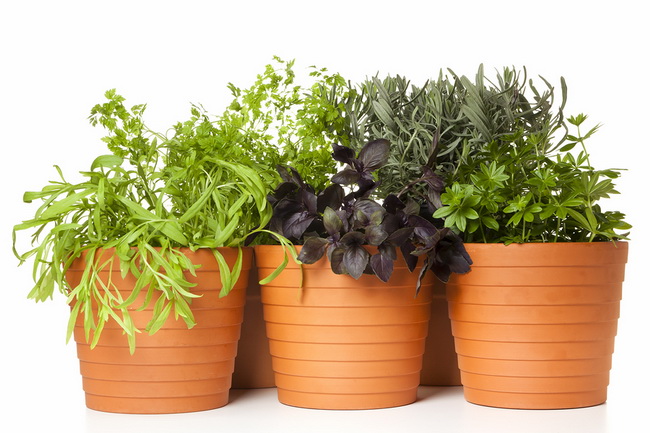
Photo credit: bigstock.com
7. Basil
Although most of us think of basil in conjunction with Italian food, this herb actually comes to us from India. Traditionally, it has been used to treat everything from stress to asthma to diabetes. Very much like thyme, basil has powerful antiviral and antimicrobial compounds that kill such ugly things as E. coli and listeria. Basil is also a natural COX inhibitor, which means it’s a great anti-inflammatory. Drink basil tea at least once each day, and add some to your cooking for best results. Fresh basil beats dried, but it is sometimes difficult to find in the winter. Dried basil is better than nothing!
8. Bay Leaves
Both dried and fresh bay leaves are terrific for the digestive system because they act as a natural detoxifier through their diuretic action. Bay leaves are loaded with B vitamins, which are vital for vegans. Bay leaves also support the central nervous system to help increase your metabolic rate as well as energy levels.
Continue to Page 5
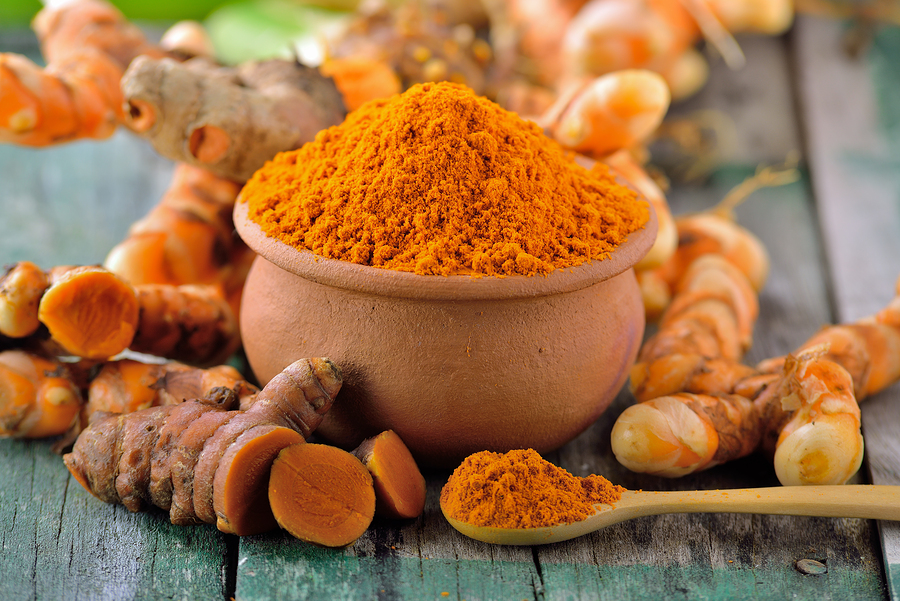
Photo credit: bigstock.com
9. Turmeric
Sometimes called the king of anti-inflammatories, turmeric is more like the super star of herbs. The main active ingredient, curcumin, not only fights inflammation but has been found in studies to fight against Alzheimer’s disease, and it destroys every cancer cell that it has been tested on. Turmeric seems to know which cells are cancerous and which are not, as it destroys cancer but leaves healthy cells alone.
10. Cinnamon
It’s hard to imagine that anything that tastes so good could be so good for you, but perhaps this is Mother Nature’s way of getting us to eat more of it! Just a half a teaspoon of cinnamon each day can greatly lower your risk of developing cancer. Cinnamon is also loaded with iron and calcium, something most women could use more of. This super versatile spice reduces the risk of tumor growth as it inhibits new blood vessel growth. Blood vessels are needed to provide the tumor with food. Cinnamon also suppresses the growth of H. pylori, which is a bacteria known to cause ulcers, stomach cancer, pancreatic cancer, and gastric cancer. Get your cinnamon on and add that stuff to everything!
READ ALSO: Unbelievable Foods, Herbs, and Spices That Can Heal Cancer
You probably never imagined that there was so much healing and preventative power sitting right there in your own kitchen, but nature has provided us with everything we need! If only we would listen to her and use what she has so generously given us.
References:

































Gabe
Jun 13, 2016 at 11:26 am
Caution; Use Ceylon over Saigon cinnamon due to Saigon’s liver damaging properties. The Federal Institute for Risk Assessment concluded that you’d need to take about a gram per day — 1,000 milligrams — for six months or longer to be at risk.